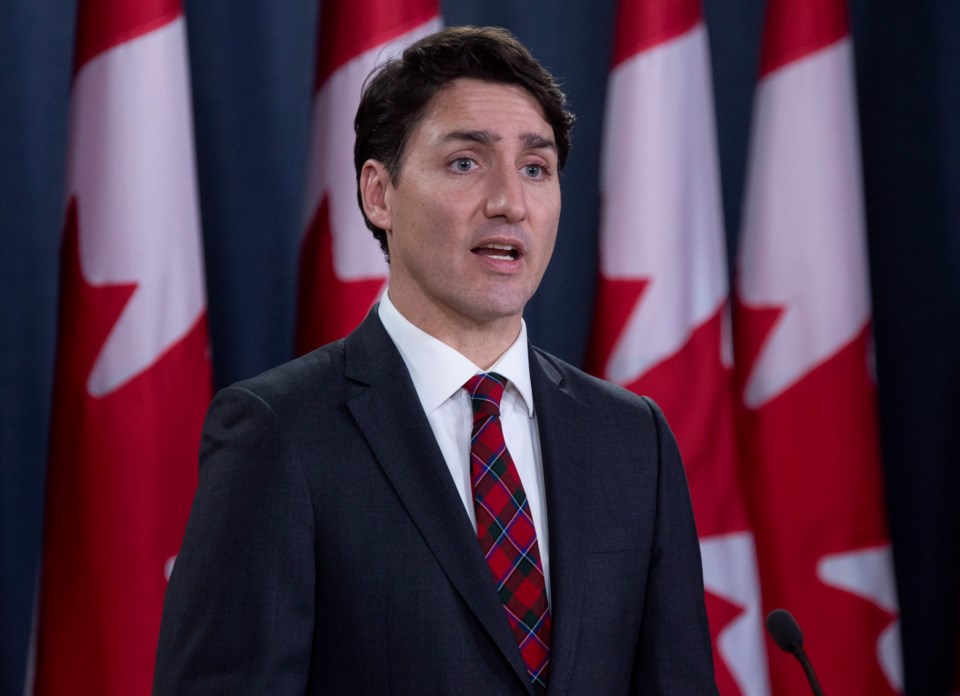In the midst of the biggest parliamentary scandal since the Liberals last held office, the prime minister has hit on a solution. Justin Trudeau has announced further details of a plan to reduce carbon emissions.
He’d be better off dealing with sulphurous emissions. His ex-attorney general, Jody Wilson-Raybould, has publicly accused him of bullying her. She says Trudeau wanted her to drop corruption charges against SNC-Lavalin, an engineering firm based in Quebec (by no coincidence the prime minister’s home province).
When Wilson-Raybould refused, she was demoted and subsequently resigned. Shortly after, she was followed out the door by treasury board president Jane Philpott, who quit in disgust over what happened to her colleague. Clearly, the cabinet climate needs fixing.
But let’s take the prime minister seriously. His proposal calls for a tax on carbon emissions, starting this year at $20 a tonne and rising to $50 by 2022. Some of the money raised will be refunded to taxpayers.
The political benefit of a cash handout is obvious. The first cheques would arrive just in time for this October’s federal election.
The impact on climate change is another matter entirely. Some experts project that Trudeau’s plan might reduce Canada’s greenhouse emissions by about 10 per cent.
Since these estimates are based on complex interactions that cannot be accurately measured in advance, they are essentially worthless. But for the sake of argument, let’s assume they’re right.
Canada produces 1.5 per cent of global fossil-fuel emissions. A 10 per cent reduction means our contribution would fall by 0.15 percentage points — hardly a major contribution.
However, there’s another way of looking at this. According to NASA’s Earth Observatory (scarcely a bastion of climate-change deniers), global temperatures have risen by about 0.8 degrees Celsius since 1880.
Two-thirds of that increase occurred from 1975 to the present — about 0.2 degrees every 10 years.
So assume Trudeau’s carbon plan reduces our share of global emissions by 0.15 percentage points.
Then the impact on global warming will be almost immeasurably small. Two math experts I consulted say that, expressed as a quantity, it amounts to three 10-thousandths of a degree. Since the satellites that track temperature changes measure to only two decimal places, our contribution won’t even be noticed.
Double the impact, indeed triple it, and it’s still just a rounding error.
However, what it will cause is financial ruination. Raising the price of carbon emissions to $50 per tonne is expected to reduce greenhouse-gas production by 80 million to 90 million tonnes. That’s equivalent to taking every car in the country off the road.
Of course, this is not primarily where the axe will fall. That figure is merely an illustration of the magnitudes we’re talking about.
The principal impact will be felt by industry and, in particular, the energy sector. It will also increase the cost of homes, especially apartment buildings that will have to install expensive insulation to minimize their heat output.
The price of commercial travel, by bus, train, aircraft or ferry, will rise, as the price of the fuels they burn increases.
As regards our economy, the parliamentary budget officer estimates that a $50-per-tonne carbon tax would reduce GDP by 0.45 per cent. Since our GDP stands at $2.2 trillion, this translates into an annual loss of about $10 billion and thousands of jobs.
If there are tough times ahead, that’s enough to threaten a recession. As it is, over five years the cost per family would average $5,500.
In fairness, all of the figures in this piece are the roughest of estimates. They depend on computer modelling, where garbage in equals garbage out.
And I imagine some will retort that what counts isn’t the actual impact of a carbon plan, but the moral effect of showing leadership. Unfortunately, that won’t undo the economic damage inflicted.
But it might improve an embattled prime minister’s chance of re-election.



